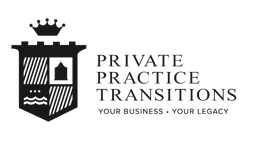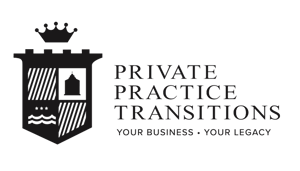Running a successful private practice demands dedication, expertise, and a significant amount of personal involvement. However, practice owners must eventually learn to delegate so that they aren’t trying to tackle every aspect of the practice on their own. Failing to let others take the reins can limit the success of your business when you’re not around, so you want to make sure people can stand in your place to run things smoothly while you’re out of the office. Private Practice Transitions is here to help by offering effective strategies for reducing owner dependence that allow you to keep things running by putting your faith and skills in others.
Understanding Owner Dependence
Owner dependence occurs when the operation and growth of a practice rely entirely on the owner’s involvement. This situation can limit decision-making and scalability, and it could deter potential buyers if you are looking to sell your practice.
You can’t begin addressing issues related to owner dependence until you can recognize the signs. Being too hands-on with day-to-day operations can make your absence detrimental to the practice. If this happens, you may need to change some things. You want your practice to run smoothly and efficiently, even when you’re not there.
Building a Strong Management Team
One of the most effective ways to reduce owner dependence is by building a strong management team that understands your leadership style. Appointing capable co-leaders who understand the intricacies of your practice can help to alleviate the pressure on you. The best place to start is by identifying potential leaders within your team.
Invest in the growth of these leaders through training and mentorship programs. Encourage them to take ownership of their roles and involve them in key decision-making processes. Empowering your team boosts their confidence and fosters a sense of responsibility, allowing you to step back.

Documenting Processes and Procedures
Documenting your practice’s processes and procedures should never fall to the wayside. When the only record of these decisions exists in your head, it becomes difficult for your team to perform their duties effectively. Begin by identifying the core processes that keep your practice running smoothly.
Breaking down each process into simple steps enables your team to execute tasks without your constant guidance. It also becomes a valuable resource during transitions, such as onboarding new staff or preparing for potential buyers.
Delegating Responsibilities
Some business owners see delegating as pushing work onto other people; in reality, it creates a sense of trust in your team. Through delegation, you show your team that you trust them with these responsibilities and believe the task plays to their strengths.
Assess the strengths and weaknesses of your team members and allocate tasks accordingly. Be sure to provide clear guidelines and expectations.
Regular check-ins and feedback sessions are great for monitoring progress and addressing challenges. Effective delegation reduces your workload, boosts employee morale and engagement, and enhances productivity within your practice.
Leveraging Technology for Efficiency
Technology plays an important role in reducing owner dependence. Consider adopting software for appointment scheduling, billing, and client management. Cloud-based systems provide easy access to information and enable your team to work efficiently in your absence.
Digital communication tools can also help your staff collaborate when you’re unavailable, reducing the need for oversight and keeping things operational. By leveraging technology, you can automate repetitive tasks, freeing up valuable time for strategic planning and growth initiatives.
Creating a Succession Plan
A well-thought-out succession plan is essential for reducing owner dependence and ensuring the long-term sustainability of your practice. When assessing your staff’s strengths, consider who is most likely to take over for you one day. Do they have the necessary skills and vision to lead your practice?
Develop a structured plan that outlines the transition process, including training and mentorship opportunities. Preparing for future leadership changes allows you to think about who could best run your practice when you retire.

Fostering a Culture of Empowerment
Creating a culture of empowerment encourages employees to take initiative and make informed decisions. Foster an environment where employees feel like the leadership team values and appreciates their contributions and strengths.
Encourage open communication and feedback, while providing opportunities for staff to voice their ideas and concerns. You can further motivate your team by recognizing and rewarding their achievements and appreciating what each of them brings to your practice. A confident workforce reduces the burden on you as the owner and enhances the efficiency and adaptability of your practice.
Establishing Clear Communication Channels
Clear communication is an important component in any successful practice. Establishing transparent communication channels keeps everyone on the same page, reducing misunderstandings and minimizing dependency on you for guidance.
Hold regular team meetings to discuss goals, challenges, and progress. Utilize digital tools for sharing updates and information in real time. Remember to foster open communication and create a cohesive team that can operate independently. Having a clear and open forum for communication helps you assign tasks while keeping everyone up to speed and strengthening your practice.
Monitoring and Measuring Progress
To reduce owner dependence effectively, monitor and measure the progress of the strategies you put into place. Regularly assess key performance indicators (KPIs) related to employee engagement, productivity, and client satisfaction. Use these metrics to identify areas that require further improvement and make data-driven decisions. Continuously evaluating the impact of your efforts allows you to refine your approach and support ongoing growth and sustainability for your practice.
Celebrating Milestones and Successes
Acknowledge and celebrate the milestones and successes of your practice and, more specifically, the people who make them happen. Genuine recognition is one of the best boosts of morale, and it can make your staff more confident in their abilities. This also reduces owner dependence by creating a system where your staff uplift each other so that they aim to work hard for the team instead of simply trying to impress the boss.
Whether it’s hitting a target, successfully delegating a complex task, or implementing a new process, celebrate these moments together. Doing so strengthens the bond of your team, reinforces the value of empowering others, and contributes to a harmonious practice.
If you’re ready to take the next step in reducing owner dependence and enhancing the value of your private practice, consider reaching out to Private Practice Transitions for a professional business valuation. By seeing where your practice is now, you can make informed decisions moving forward. Contact us anytime to learn more about what we have to offer and how we can guide your practice in a positive direction.






